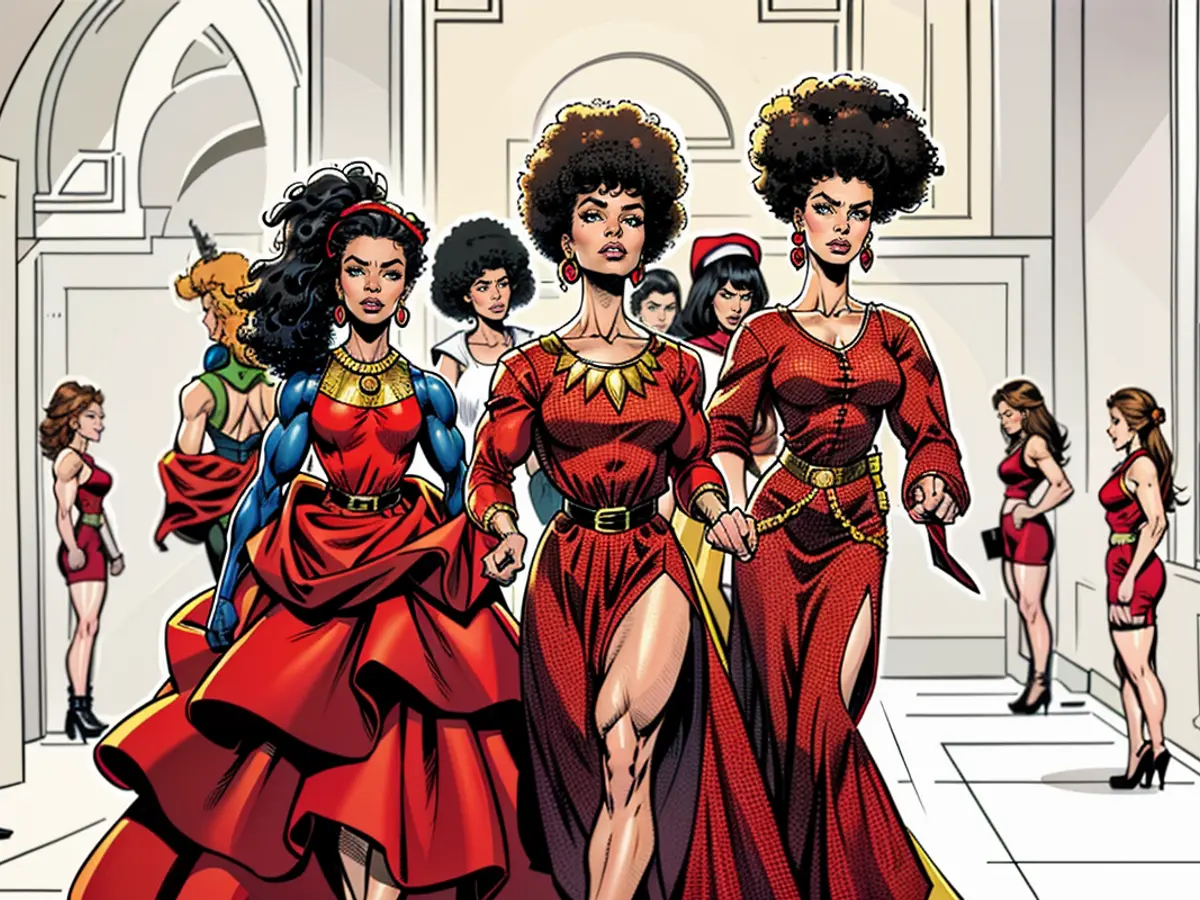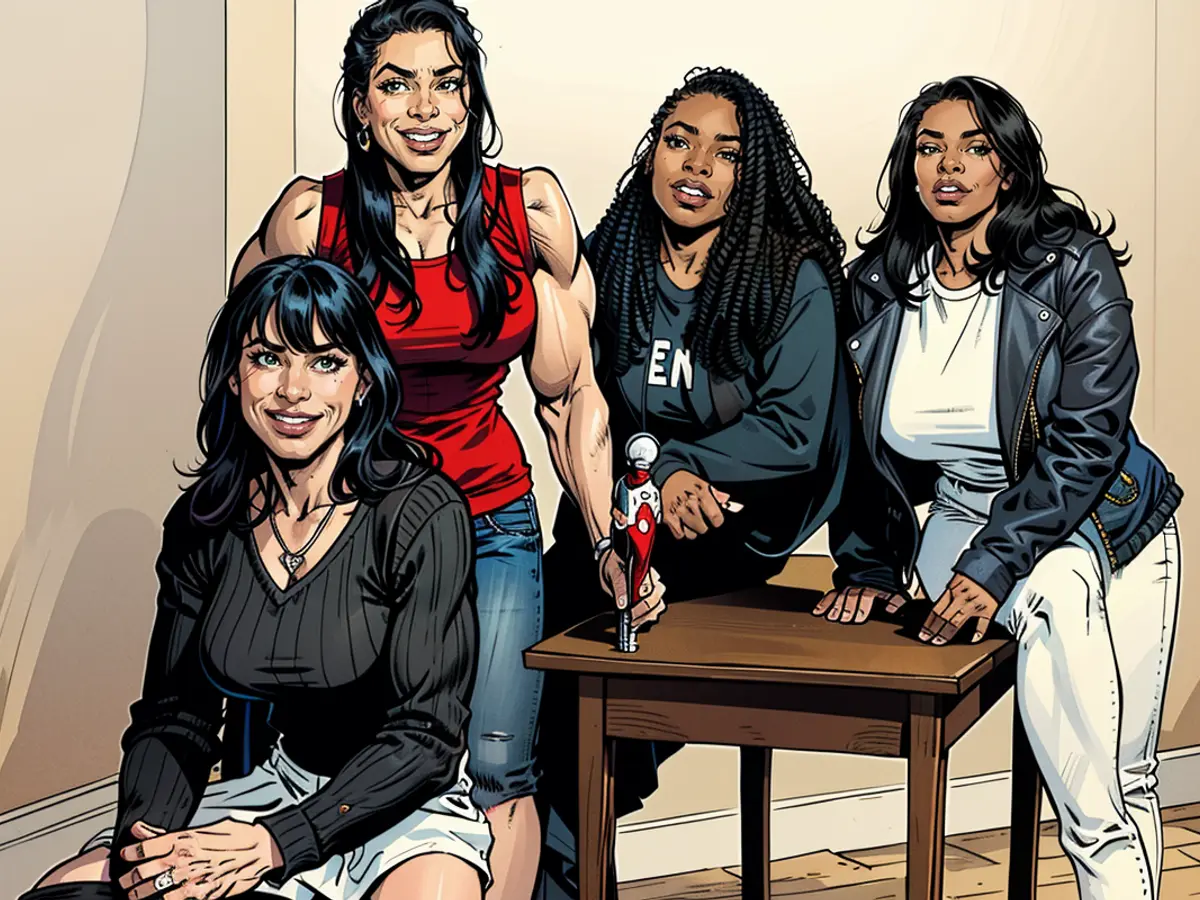A fresh documentary delves into the reasons behind the 'Black Barbie' being significantly more than a simple toy figure.
Davis, who admitted she wasn't a huge fan of dolls herself, became intrigued by her aunt's affection for the toys. Discovering her aunt's vital role in creating the first Black Barbie doll, she felt there was a compelling tale to uncover.
"My aunt definitely had a story to tell, so I was eager to dive right in," Davis explained in a conversation with CNN. And that's exactly what she did: her new documentary, titled "Black Barbie: The Untold Story," delves deeper into the origins of Black Barbie and its significance in the toy business, as well as broader cultural implications. The film features testimonies from Black women who worked at Mattel, as well as appearances from Shonda Rhimes, ballerina Misty Copeland, Olympic fencer Ibtihaj Muhammad, and Congresswoman Maxine Waters, among others. Rhimes (whose production company, Shondaland, acquired the documentary at the SXSW Film Festival last year), Copeland, and Muhammad all had dolls modeled after them.
Mitchell spent over four decades working at Mattel, joining the company in 1955 on the assembly line—one of few African-Americans employed there at the time. As a child, she had been captivated by dolls but hadn't considered the possibility of having a black doll due to the lack of such options available.
In 1960 or 1961, she persuaded Mattel founder Ruth Handler to produce a Black Barbie doll—an "act of revolutionary intent," according to UCLA professor Patricia A. Turner in the documentary. (At the time, Handler reportedly responded, "we'll see," which Mitchell recalled.)
Although Mattel did later sell Black dolls like "Christie" and "Nurse Julia" in the late sixties, they were not Barbie dolls. (Christie was marketed as a side character in "Barbieland," while Nurse Julia was a celebrity doll based on the actor and singer Diahann Carroll.) The actual Black Barbie doll didn’t become a reality until decades later, after the company hired Kitty Black Perkins as its first Black designer in 1976.
When Black Barbie was finally released in 1980, it departed dramatically from the traditional Barbie image: fuller lips, wider nose, bright colors, and a short Afro.
"When I designed this doll, there was a need for little Black girls to have something they could play with that looked like them," Black Perkins said in the documentary. "I wanted her to encapsulate the complete look of a Black woman."
The power of representation
"Barbie is an incredibly ubiquitous and iconic brand," Aaliyah Williams, the documentary's producer, told CNN. "It's significant to understand that the Barbie brand can be associated with a non-white doll. Having Black Barbie dolls reinforces the idea that being black is cool and fantastic—and that Black women are beautiful. Although having Black dolls growing up didn't exclusively foster this feeling in me, I've always felt proud and beautiful," Williams added, noting that the dolls served as a reflection of herself.
The documentary discusses the impact that dolls can have on children, especially in terms of self-image and beauty ideals. (Mattel has faced criticism for its lack of diversity and unattainable body proportions over the years.) Some of the Black women interviewed in the documentary shared memories of playing with White dolls and attempting to alter their features to better resemble themselves. Others remembered receiving only Black dolls from their parents.
"I can still feel the joy I experienced when I first met Black Barbie," said historian Yolanda Hester, describing the doll as "an acknowledgement of your existence and the value we have."
Despite limited marketing and advertising, Black Barbie sold well, according to Mitchell, leading to a whole range of Black dolls, such as the Shani doll line (in various shades) and a 30th-anniversary doll designed by Stacey McBride-Irby, who also appears in the documentary. While working at Mattel, McBride-Irby also launched the So In Style (S.I.S.) line of Black dolls focusing on mentorship and community.
In recent years, the Barbie brand has broadened and diversified significantly by offering dolls with various body types, careers, and physical disabilities.
"It's a beautiful legacy story," Davis told CNN. "It illustrates the potential for representation—and we're discussing a time when there weren't any DEI initiatives."
"Black Barbie serves as validation for my aunt, Kitty, and Stacey, being seen and heard in a company where they were often silenced," Davis continued. "Black Barbie is also validation for us filmmakers, everybody who worked on it, being seen and heard in this industry."
Williams stated she was deeply moved when watching the final cut of the documentary.
"I felt emotional. It was so beautiful. I think this is the ultimate love letter to Black women, who are often not validated and told how amazing they are," she said. "I'm incredibly proud of this film, and I'm proud of Lagueria. I can't wait for the world to see it."

Read also:
The documentary highlights how Kitty Black Perkins, the first Black designer at Mattel, used her role to create a Black Barbie doll that was a true representation of Black women. The style of this doll, with fuller lips, a wider nose, bright colors, and an Afro, was a refreshing departure from the traditional Barbie image.








